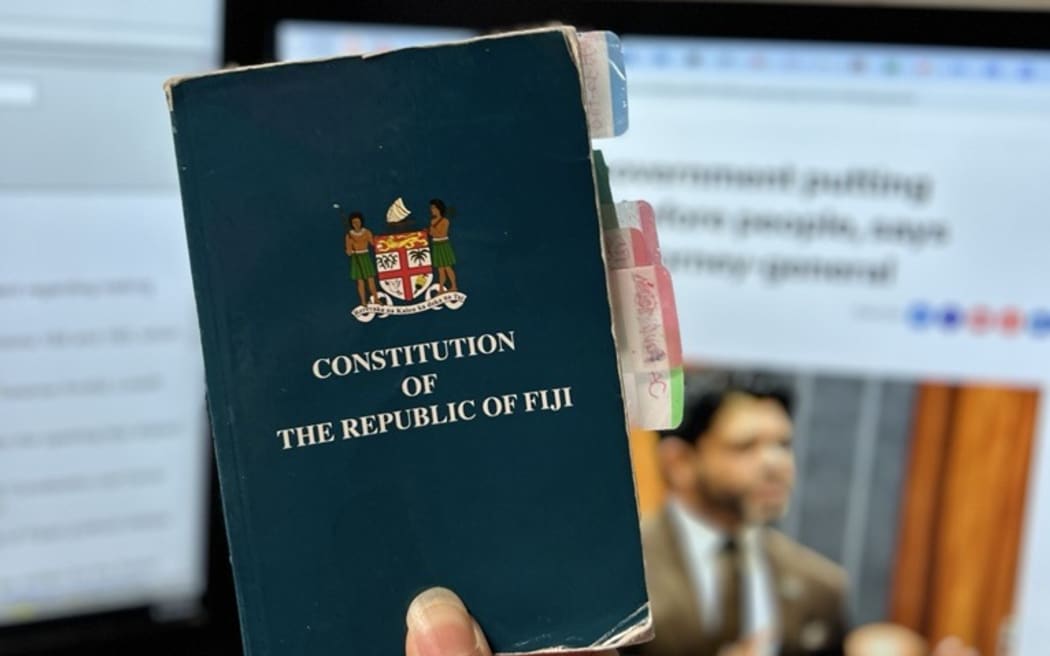World
Fiji Supreme Court Lowers Constitutional Amendment Requirements

Fiji’s Supreme Court has ruled that the requirements for amending the 2013 Constitution should be reduced, allowing changes to be made with less parliamentary support and a simple majority of voters in a referendum. This decision, delivered on March 1, 2024, comes after a week-long hearing initiated by the coalition government seeking clarification on constitutional amendment processes.
The court found that the existing stipulations, which mandate a 75 percent agreement from both members of parliament and registered voters, rendered the Constitution “virtually unamendable.” The ruling now establishes that amendments can be approved with a two-thirds majority of MPs alongside a simple majority of voters in a referendum.
The court emphasized the necessity of maintaining the basic framework for amendments that requires consent from both parliament and the electorate. It stated, “In this way, we have recognised the basic structure of the amendment provisions, requiring approval from both members of Parliament and voters.”
Significantly, the court also determined that individuals involved in the 1987 and 2000 coups will retain immunity from prosecution. This ruling reflects the court’s belief that such immunity is essential for “stability and continuity” in the nation.
The coalition government, led by Prime Minister Sitiveni Rabuka, expressed support for the Supreme Court’s opinion. In a statement, Rabuka noted that the opinion “provides clarity on matters of constitutional law and governance.” He indicated that the ruling would be reviewed by the Cabinet for further action, reinforcing the government’s commitment to the rule of law and collaborative decision-making.
During the proceedings, Arthur Moses SC, representing the Fiji Law Society, challenged the state’s push for constitutional amendments, questioning the urgency and necessity behind the proposed changes. He argued that the 2013 Constitution was designed to facilitate change, albeit in a more rigorous manner, and should not be easily amendable like regular legislation.
In contrast, Simione Valenitabua, representing the ruling People’s Alliance Party, contended that the 2013 Constitution lacked legitimacy and should not supersede the 1997 Constitution, which was established through unanimous parliamentary approval and public consultation. Valenitabua asserted that the 1997 Constitution represented the true governance framework for Fiji, unlike its successor, which was imposed following a coup.
Warnings were also issued by barrister Jagath Karunaratne, who cautioned that making amendments easier could undermine human rights and minority protections. He stated, “If this court lowers the bar and allows the state to pass a simple bill in parliament to amend the Constitution, the government will be able to trample on those rights.”
The Supreme Court’s decision has sparked significant discussion regarding the future of Fiji’s constitutional landscape and the balance of power between the government and its citizens. As the coalition government prepares to address the court’s opinion, the implications of this ruling will undoubtedly shape Fiji’s political discourse in the coming months.
-

 World1 week ago
World1 week agoPrivate Funeral Held for Dean Field and His Three Children
-

 Top Stories2 weeks ago
Top Stories2 weeks agoFuneral Planned for Field Siblings After Tragic House Fire
-

 Sports3 months ago
Sports3 months agoNetball New Zealand Stands Down Dame Noeline Taurua for Series
-

 Entertainment3 months ago
Entertainment3 months agoTributes Pour In for Lachlan Rofe, Reality Star, Dead at 47
-

 Entertainment2 months ago
Entertainment2 months agoNew ‘Maverick’ Chaser Joins Beat the Chasers Season Finale
-

 Sports3 months ago
Sports3 months agoSilver Ferns Legend Laura Langman Criticizes Team’s Attitude
-

 Sports1 month ago
Sports1 month agoEli Katoa Rushed to Hospital After Sideline Incident During Match
-

 World2 weeks ago
World2 weeks agoInvestigation Underway in Tragic Sanson House Fire Involving Family
-

 Politics2 months ago
Politics2 months agoNetball NZ Calls for Respect Amid Dame Taurua’s Standoff
-

 Top Stories2 weeks ago
Top Stories2 weeks agoShock and Grief Follow Tragic Family Deaths in New Zealand
-

 Entertainment3 months ago
Entertainment3 months agoKhloe Kardashian Embraces Innovative Stem Cell Therapy in Mexico
-

 World4 months ago
World4 months agoPolice Arrest Multiple Individuals During Funeral for Zain Taikato-Fox





















